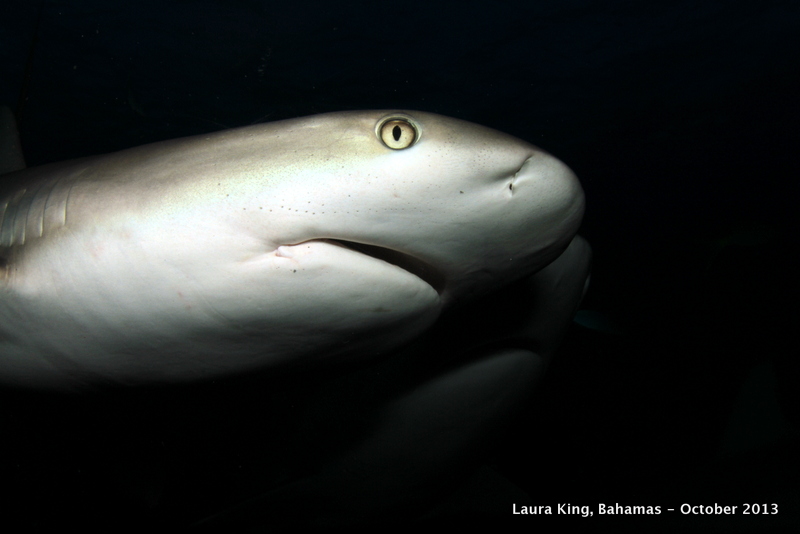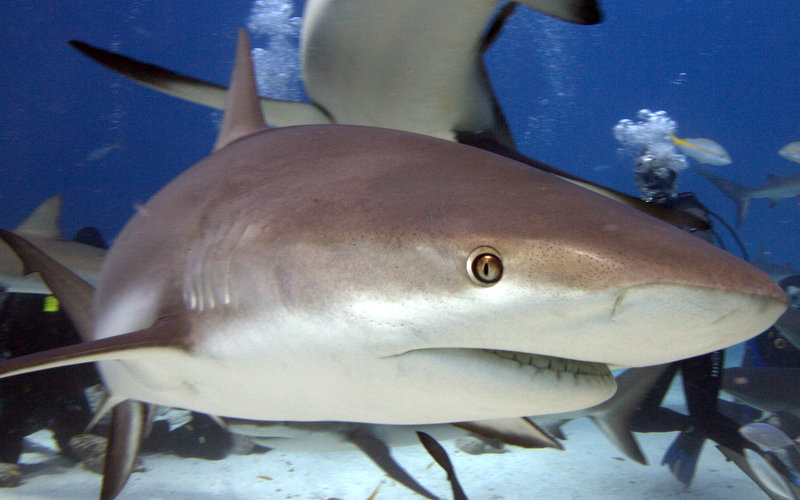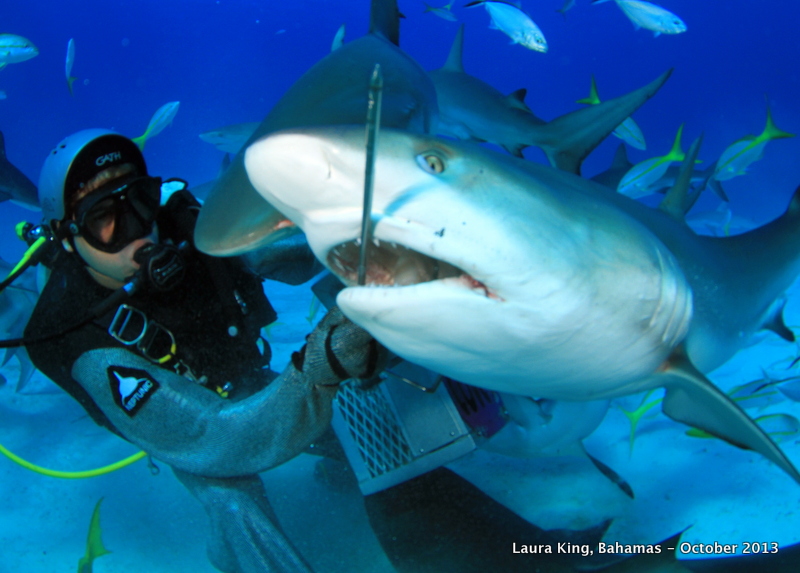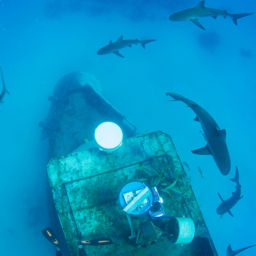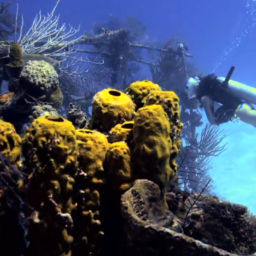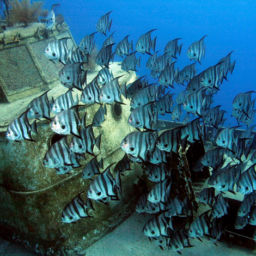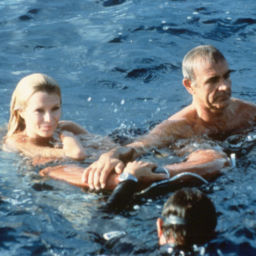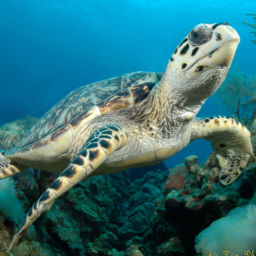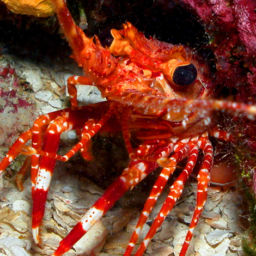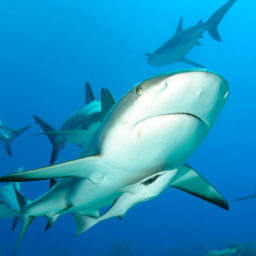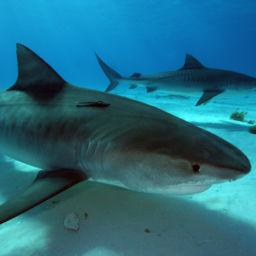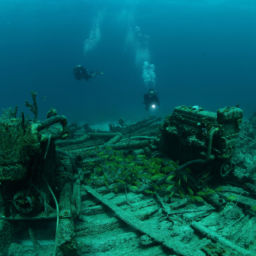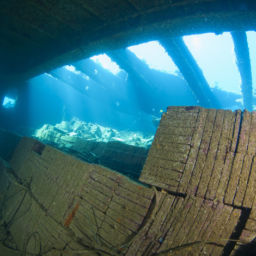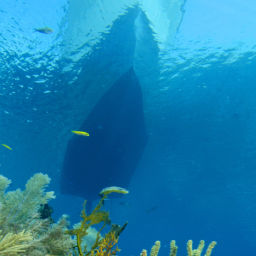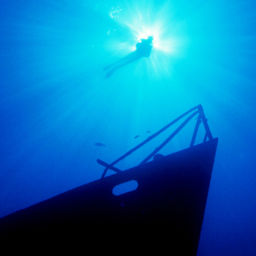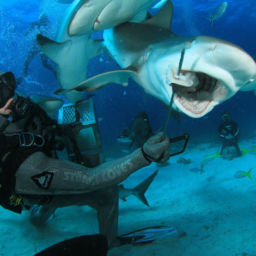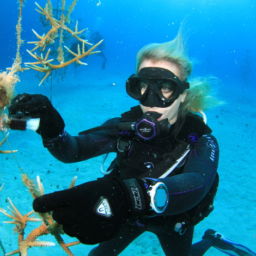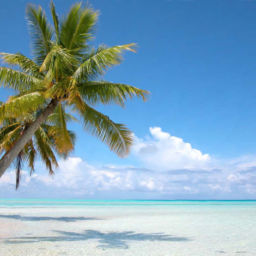By Laura King
The crystal-clear waters of the Bahamas are magical, home to countless fish, beautiful walls, large pelagics and most importantly, sharks. Caribbean reef sharks are abundant, and daily trips from Stuart Cove’s Dive Bahamas introduce thousands of people to these amazing creatures every year. Sharks here are accustomed to divers and it’s a treat to see them at ease in their natural environment, putting on a spectacular show every day.
On the orientation dive, dive guides lead you to the wall, where you’ll drop down between 60 and 80 feet. There’s an incredible abundance of marine life here in addition to the sharks, including hawksbill turtles, moray eels, schooling horse-eyed jacks and southern stingrays, just to name a few. The sharks keep their distance from the divers and it’s a fantastic opportunity to watch them swimming by.
After this first dive, you’ll head over to Shark Arena, where the feeding takes place. The site is just a short boat ride from the dive shop, and sharks usually appear on the surface as soon as the boat ties up to the buoy. You’ll have some time to become acquainted with the arena and look for shark teeth — sharks lose approximately 30,000 over the course of their lifetime, often while feeding. It’s also common for goliath groupers to make an appearance, looking to see if there’s any food around for them.
During the surface interval, dive guides walk the divers through some safety procedures. Dive leaders and staff photographers, who will come in direct contact with the sharks during the feeding, wear Neptunic Sharksuits, made of chain mail. You’ll be sitting on the outside of the circle, so while you may be lucky enough to have some shark interactions, typically you’ll be a spectator.
The photographers, who double as safety divers, take you back down on the second dive to the Shark Arena and place you in the optimum position for photos and videos. Once everyone is safely seated, the shark feeder descends from the boat. By now, all the sharks are following the feeder and it’s quite a sight to see. Usually there are between 40 and 60 Caribbean reef sharks on a feeding dive, and sometimes a few nurse sharks will sneak in too.
The shark feeder drops into the middle of the arena and gives everyone a couple of minutes just to view the sharks, which make their way in and out of the circle, passing by the divers. Watching their eyes move around, it seems as though the sharks are taking everyone in. Once settled, the feeder lines up his first piece of fish, which is attached to a spear. The feeder must watch for the perfect moment to lift the fish out of the bait box. A photographer typically goes in for a bite shot, in which the feeder directs the fish straight towards the camera.
Next, the feeder directs the sharks towards each diver/group, where the skilled photographers and videographers work on capturing the moment.
There is a lot of controversy surrounding shark-feeding dives. My view on it is this: Studies have shown that sharks can generate up to $2 million in their life span thanks to tourism. In the Bahamas alone, it is estimated that visitors spend $78 million annually on shark viewing. Shark tourism is a growing industry, which has led to greater legal protection for sharks. The Bahamas has some of the strongest protection laws in the world, which is due in part to the government realization of just how much revenue is generated annually by the shark diving industry.
Noted environmentalist Baba Dioum wrote “We only conserve what we love; we only love that which we understand; we only understand what we know; we only know what we are taught.” I believe these shark-feeding interactions are teaching people to love sharks. Many people are unaware of the effects of the shark-finning industry. Dive Operations such as Stuart Cove’s are spreading their love for sharks and educating people on conservation matters, all under safe, supervised conditions. The sharks are treated with respect at all times. I have been fortunate enough to complete many shark-feeding dives and on every single occasion I have seen a transformation in the divers. Every staff member at Stuart Cove’s spreads a message of conservation and tries to educate their guests on the plight of the sharks; you will leave with a newfound respect and appreciation for these creatures.
Once people understand that sharks are not mindless man-eaters, but rather wild animals going about their lives, perhaps they can learn to treat them with respect and care rather than fear.


